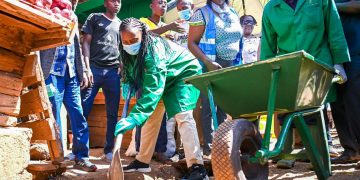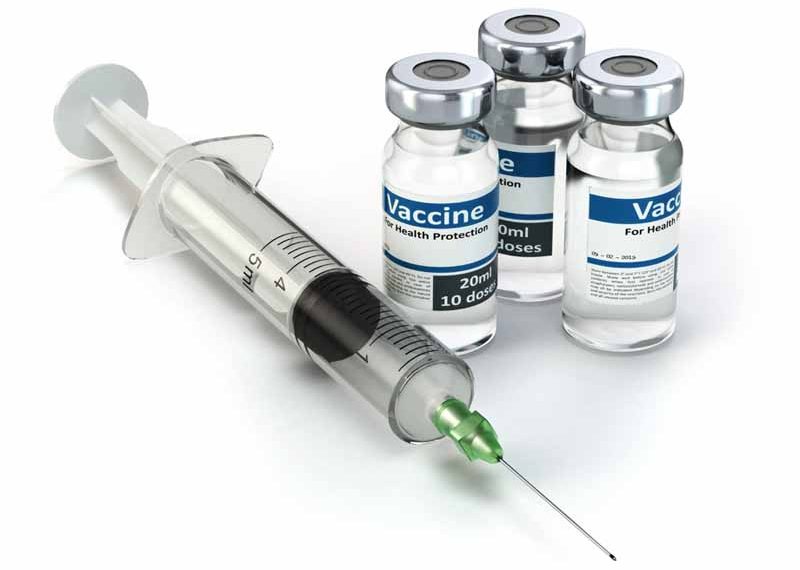Kenya Civil Society Organizations (CSO’s) in the health space have decried stock outs and shortages of supplies of childhood vaccines that prevents the deadly rotavirus infection in children (Rota Virus), crippling and life-threatening disease prevented by oral polio vaccine (OPV), one that fights tuberculosis (BCG) and measles and rubella.
According to a letter addressed to the Chair, Parliamentary Health Committee, signed by Health NGO’s Network (HENNET), PATH-Kenya, Amref Health Africa, Waci-Health, Access to Medicines Kenya, Stop TB Partnership Kenya, TB Champions, Coalition for Health Research and Development (CHReaD), KANCO, Kenya Legal and Ethical Issues Network on HIV and AIDS (KELIN), Ecumenical Pharmaceutical Network and FBOs (Kenya Faith Based Health Services Consortium), cites budget cuts for vaccines in the financial year 2023/2024 as a possible cause of the shortages.
“The country is experiencing Oral Polio Vaccines, Measles Rubella, and BCG stock outs, with erratic supply of Rota Virus vaccine to health facilities in various counties, in almost half of the counties,” the CSO’s revealed to the chairman of the health committee.
The CSO’s say that the recent cuts of the immunization budget Line (0410040), during the Supplementary Budget has made government’s funding for vaccination programs and healthcare infrastructure insufficient to meet the needs of the population, which has contributed to the vaccine shortage and weak healthcare infrastructure.
“Recent cuts of the immunization budget Line (0410040), during the Supplementary Budget will exacerbate the existing problem of low delivery of the immunization program, and make it difficult to meet the requirements of accelerated transition from Gavi funding, in the context where only 40percent of the counties had immunization budget lines by 2019. This will also affect procurement of immunization supplies (injection devices and incinerators) and affect financial and logistics support to ensure effective delivery of vaccines to the last mile.”
“The Supplementary Budget 2023/2024 of approved estimates was Ksh. 9,892,774,930, passed supplementary estimates revised of Ksh. 9,429,639,546 which reduced the immunization budget by Ksh 463,135,384,” The CSO’s said.
The CSO’s says that major health facilities are now forced to turn nursing mothers away due to erratic supply of childhood vaccines arguing that the situation exposes the lives of millions of Kenyans, especially children under five years to life-threatening conditions or even death.
They added that “The cut in vaccine budget is likely to affect timely vaccine procurement, leading to more shortages and even outbreak. Currently we have Measles out breaks in some parts of the country, with fear of the return of circulating Wild Polio Virus, in the context of OPV shortages. This will also increase the number of zero-dose children, and also affect future demand for vaccines.”
According to Hennet Executive Director Dr Margaret Lubaale members of parliament should know that vaccines save children lives and consider allocating enough funds to immunization program.
Timely vaccination of children, according to UNICEF, is a proven method for saving lives from vaccine-preventable diseases. It can also help attain some targets like the U.N. Sustainable Development Goal 3, which aims to ensure healthy lives and promote well-being for all. Children who are not vaccinated against polio, for example, risk becoming weak and their muscles won’t be strengthened.
According to the WHO, polio is a highly infectious viral disease that primarily affects children under five years of age. The virus is transmitted person-to-person, mainly through the fecal-oral route or less frequently, through contaminated water or food. It multiplies in the intestine, where it can invade the nervous system and cause paralysis. It has no known cure but can be prevented by an oral vaccine.
WHO also says that Measles and rubella are highly infectious and serious diseases caused by viruses, for which human beings are the only reservoir. Rubella is a viral illness that causes a mild fever and a skin rash and is spread through contact with fluid from the nose and throat. It can be prevented with a rubella vaccine. The vaccine is first administered when a child is aged 12 months to 15 months, and then again between age 4 and 6 years.
According to Stop TB Partnership Kenya Evaline Kibuchi, among those facing higher risk are infants who could contract tuberculosis due to shortage of BCG vaccine, the vaccine given to newborns to protect them from contracting different forms of TB, including TB meningitis which is common in infants.
The CSO’s says that the budget cuts come at a time when Kenya Country co-financing payments to GAVI in 2024 is US$ 11,655,533, while total Gavi support is US$ – 13,054,393. This means that Kenya’s co-payments are almost 50percent of all vaccines needs.
“The budget cuts will exacerbate the existing problem low delivery of the immunization program, and make it difficult to meet the requirements of accelerated transition from Gavi funding, in the context where only 40pertcent of the counties had immunization budget lines by 2019. This will also affect procurement of immunization supplies (injection devices and incinerators) and affect financial and logistics support to ensure effective delivery of vaccines to the last mile.”
While, Program Manager, LVCT Health, Patriciah Jeckoniah said that vaccines are one of the greatest public health successes of our time because they don’t cost very much yet they have a huge public health impact. She says that with the transition from donor funding to domestic funding the country needs to allocate enough funds to the immunization programs to ensure that we don’t have stock-outs and shortages.
“We have heard reports of Women dying because of diseases such as cervical cancer which is very expansive to treat, however, it can be prevented using Human papilloma virus vaccines (HPV), to avert deaths and treatment costs, government should increase vaccines and immunization budgets to ensure that we don’t have shortages and help us avoid preventable death.”













